Life
Sign up for our newsletter
We summarize the week's scientific breakthroughs every Thursday.
-
 Health & Medicine
Health & MedicineHarmless bacterium edges out intestinal germ
Researchers treated C. difficile infections in mice with a closely related bacteria that blocks C. difficile growth.
-
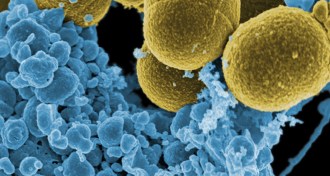 Life
LifeCells make their move with their ‘skeletons’
A close look at exactly what makes cells move could lead to better defenses against the spread of cancer and improved wound healing.
-
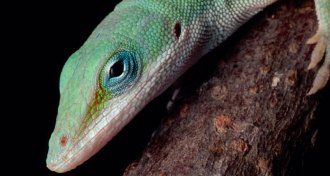 Animals
AnimalsInvasion drives quick evolution of lizard feet
After Florida islands were invaded by the Cuban anole, indigenous Carolina anoles quickly evolved feet better suited for climbing high.
-
 Health & Medicine
Health & MedicineCocoa antioxidants boost the aging brain
High doses of cocoa flavanols can improve some types of brain function in older individuals, a new study shows.
-
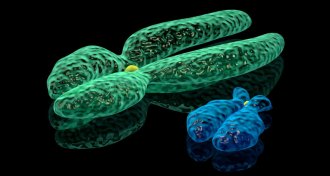 Genetics
GeneticsMen who lose Y chromosome have high risk of cancer
Losing the Y chromosome in blood cells may bring on cancer and shorten men’s lives.
-
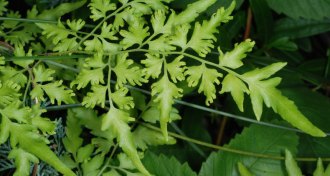 Plants
PlantsHow female ferns make younger neighbors male
Precocious female ferns release a partly formed sexual-identity hormone, and nearby laggards finish it and go masculine.
By Susan Milius -
 Genetics
GeneticsEaster Islanders sailed to Americas, DNA suggests
Genetic ties among present-day populations point to sea crossings centuries before European contact with Easter Island.
By Bruce Bower -
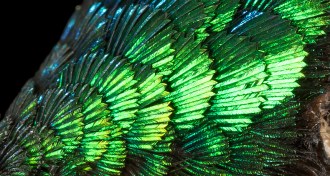 Paleontology
PaleontologyBright feathers give hints about dino vision
Dinosaurs may have seen the world in brilliant ultraviolet light and turquoises, which may have influenced the evolution of birds' feathers.
-
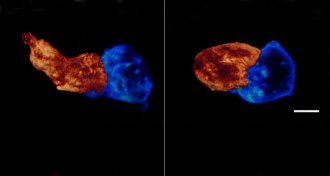 Tech
TechNew microscope gives clear view inside cells
By splitting beams of light, a new microscopy technique can capture activity inside a cell.
By Meghan Rosen -
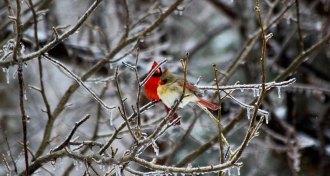 Animals
AnimalsSouthern birds may be moving into your winter backyard
A warming climate is letting warm-adapted birds live farther north in winter, a new study finds.
-
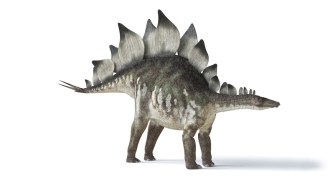 Paleontology
PaleontologyStegosaurus landed a low blow in dino brawl
During a dinosaur scuffle 147 million years ago, a stegosaurus whipped an allosaurus in the crotch.
-
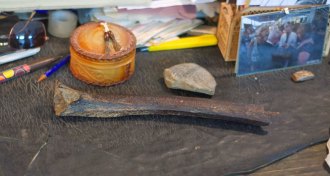 Humans
HumansOldest human DNA narrows time of Neandertal hookups
A 45,000-year-old Siberian bone provides genetic clues about the timing of interbreeding between ancient humans and Neandertals.
By Bruce Bower